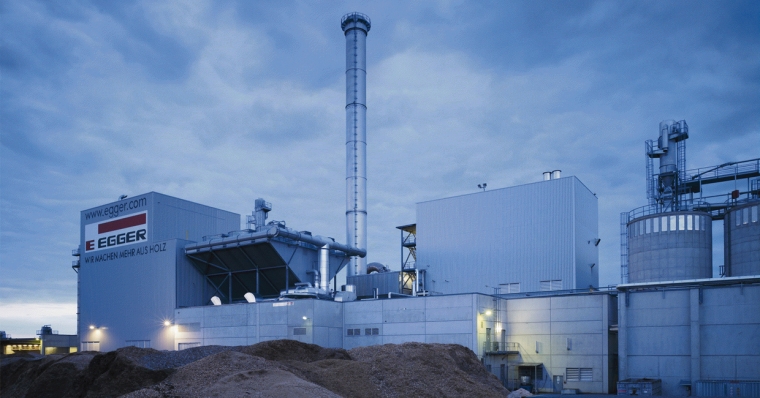Founded in 1961, the international manufacturer of wood-based materials packs some serious clout, with more than 11,000 employees and 22 production locations worldwide. EGGER has always been at the forefront when it comes to sustainable living and working, as well as the sustainable sourcing of wood and the recyclability of its products. Now, the EGGER Group has indicated its resolve to meet its Net Zero Target by 2050.
Meeting this target will, naturally, be no mean feat, and EGGER has set a number of interim targets for 2030 in order to stay on track. By 2030, direct emissions from the company’s own plants (Scope 1) will be reduced by at least 30%, indirect emissions from purchased energy (Scope 2) by at least 40% and indirect upstream and downstream emissions (Scope 3) by at least 10%. The base year of the climate targets is 2022.
Even before the company embarks on this journey, it has already instigated an array of measures and made a significant investment in climate protection. For example, EGGER’s regular operation at its plant in Unterradlberg (AT) is now free of natural gas thanks to the installation of a new heat exchanger. It is used to heat the thermal oil needed for operating the rawboard press and the four lamination lines – a process that previously required the use of natural gas. The new heat exchanger is now operated with steam from the existing biomass power plant.

EGGER also has big plans for its plant in St. Johann in Tirol (AT), where it is investing around EUR 80 million in a new power plant and thus in renewable energy supply at this location. By supplying both heat and electricity for its own production processes using a steam boiler and combined heat and power generation from biogenic fuels, EGGER will reduce the use of fossil fuels at the location to almost zero and can also supply the surrounding communities with even more sustainable district heating. The new power plant, which is being built to the latest industrial standards, is scheduled to be commissioned in the first quarter of 2026.
In a further step, EGGER has also switched on a large scale to binding agents produced with CO2-neutrally generated electricity. Since 1st January 2024, the three resin plants have only used electricity that is CO2-neutrally generated. It comes from hydro, wind or solar energy, for example.
This switch applies to all EGGER board-producing plants in the EU and UK and affects the chipboard and MDF product groups. EGGER is taking the first step towards reducing the CO2 footprint of the binding agents used.

Crucially, EGGER applies high standards to its own sustainability management and its transparent reporting system. While pursuing continuous improvement, the wood-based material manufacturer regularly undergoes analyses by external and renowned ESG rating agencies. These rating agencies have once again issued a good report: EGGER was awarded Prime status in the ISS ESG Corporate Rating for the fourth time and the EcoVadis silver medal for the fifth time. The family company is delighted with the great recognition and the findings from the ratings, which in turn represent important guidelines for further improvements.
“We have built up considerable expertise in carbon footprint accounting,” comments Thomas Leissing, Chief Financial Officer EGGER Group. “The causes of our emissions are known in detail and we are aware of where we need to intervene. We are delighted that we can now report further steps on the way to Net Zero.
“This path will continue to be pursued consistently; it will still require many measures, but we are convinced that we will achieve the targets we have set ourselves.”









